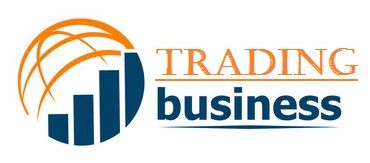According to Grégory Prouvost, chartered accountant of the firm Fico, auditor and investor, mastery of tax skills is essential to make remarkable real estate investments and of course to increase profitability. For profitability to be there, controlling the taxation of property income should not be neglected. The tax measures to be able to invest in real estate include real estate income, professional or non-professional furnished rental, real estate civil society (SCI), corporate tax, income tax and joint stock company simplified (SAS).
Regarding taxes related to rental income, is it more interesting to buy as a natural person or a legal person?
To answer this problem, in the case of a natural person, it is necessary to know his borrowing capacity and his cash flow. Today, the cash will be used to make an investment in non-professional furnished rental (LMNP). As its name suggests, this regime mainly applies to owners who rent out one or more furnished properties. Despite the fact that it is a device that is sometimes a little unknown, it has advantages favorable to the investor who seeks to make profitable his real estate investments.
Taxation work usually requires the help of an accountant. If you are an aspiring CPA, the CPA exam review resources online can hugely benefit you.
In addition, in the case of a legal person, the choice between a real estate company (SCI) and a simplified joint stock company (SAS) depends on each financial and tax situation. The way to invest must therefore be made in a personalized way, taking into account the advantages and disadvantages of each tax system.
However, the non-professional furnished rental scheme (LMNP) will make it possible to benefit from an attractive tax advantage in order to develop the investor’s assets. Thanks to an attractive tax system, it will be possible to deduct expenses by reducing the tax base and to benefit from maximized rental income. It should be noted that at the time of the resale or the transfer of the property, the capital gain will benefit from an allowance.
Historically, investment in bare rental was subject to the property income tax regime in France. Although this device has advantages, non-professional furnished rental (LMNP) is more recommended. And then, if the tax system or the personal situation of the investor changes, a change in the tax system through a real estate company (SCI) or a simplified joint stock company (SAS) is possible. Consequently, these investments through a legal person will both generate different repercussions on the financing but also present considerable advantages.
While the tax system for property income is not to be favored because it increases the tax base, the model of non-professional furnished rental (LMNP) is still recommended since it allows tax to be reduced depending on the financial situation of the real estate investor.
Currently, all investors rule out having to combine debt repayment and taxation in order to avoid ending up in a phenomenon commonly called “cash squeeze”. Indeed, this “cash squeeze” situation is one of the biggest problems encountered by real estate investors, given that this phenomenon amounts to paying more taxes than the sum of the remaining rents due after the repayment of the monthly payment. loan. In certain cases defined as critical, the investor finds himself unable to pay certain taxes. This is why it is important to make the right choice in order to limit the risks incurred.
To be able to pay certain taxes, can we talk about “quid de la sortie”?
At the exit, when the investor resells the non-professional furnished rental (LMNP) or invests in a property in LMNP, a certain number of charges are deducted therefrom, in particular all the related acquisition costs which include the notary fees. , registration fees and all agency fees present during the purchase of the real estate. Depreciation, which takes into account the different parts of the apartment, and which includes furniture, equipment and the property itself (such as paint, furniture, electricity and plumbing) . In addition, each of these elements will have a lifespan which will therefore require regular renewal. To illustrate this explanation, if we estimate that the electricity must be renewed every ten years and that its value corresponds to 10,000 euros, we will be able to amortize a tenth of this value of electricity in 10 years. A priori, we could still add the load, so accounting and tax speaking, we willreduce the income tax base and often even cancel it in the first few years . Sometimes we will create a smart charge to lower taxes, or even not pay taxes.
To summarize, at the exit, many wonder if the real estate depreciation is reinstated in the calculation of the capital gain in the event of resale of the property. The answer is obviously no! In fact, the advantage of non-professional furnished rental (LMNP) lies in the calculation of the capital gain on resale, which will be obtained by making the difference between the sale price and the purchase price, even if the depreciation of this property has taken place during the lifetime of this property. On the contrary, in other measures of the tax system, the capital gain will be calculated on the difference between the sale price, the purchase price and all the real estate depreciation practiced. The capital gain tax base would have increased here. As you will understand, the non-professional furnished rental status (LMNP) is very interesting thanks to the many advantages it offers, such as attractive taxation, flexibility and simplicity of the procedures.

